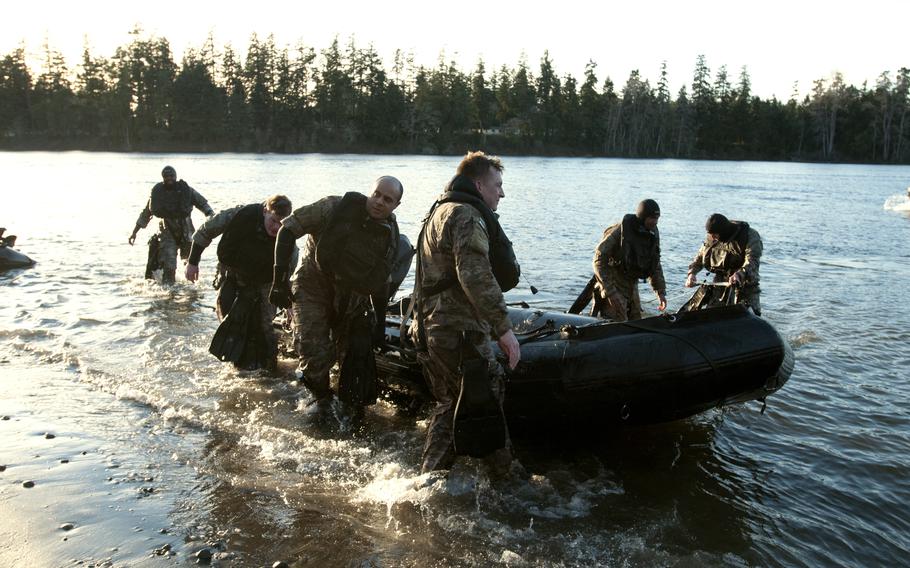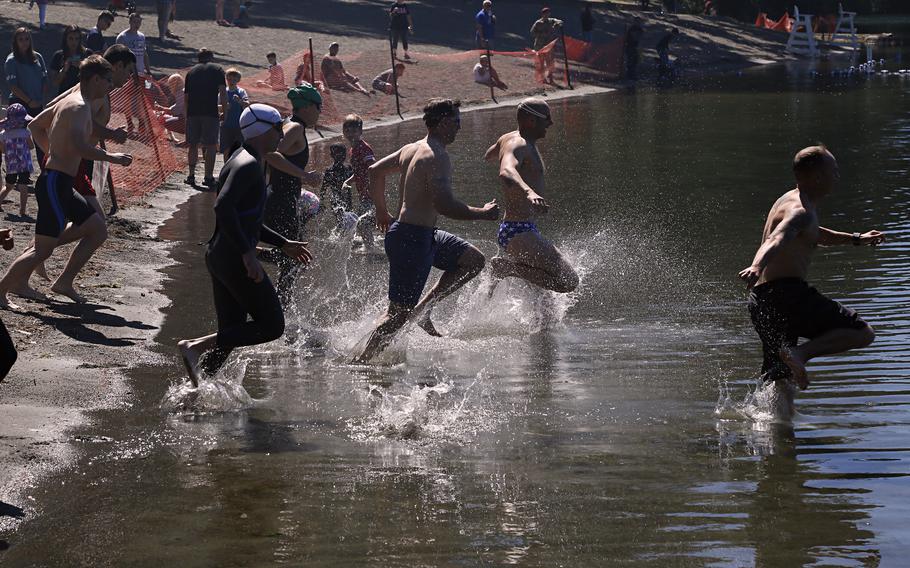
Soldiers return to shore after conducting water training on American Lake at Joint Base Lewis-McChord, Wash., in 2016. (Adeline Witherspoon/Army)
Swimming at beaches on Joint Base Lewis-McChord has been banned following the drowning death of a soldier Monday at American Lake, according to Army officials at the Washington military base.
The order bars in-water recreation other than at official swimming pools on the 90,000-acre base south of Tacoma on Puget Sound. The ban affects 44,000 active-duty personnel at the base, jointly operated by the Army and Air Force. It also applies to family members and civilian and retired personnel who use the base beaches.
Swimming pools at the installation have assigned lifeguards, base officials said, but none are assigned to lakes, rivers and other beaches. Lewis-McChord officials said Thursday the ban would likely be enforced through July as additional safety measures are under review, Lewis-McChord officials said.
American Lake stretches 1.7 square miles between Interstate 5 and the Puget Sound. The Army uses it for special forces and parachute training. It’s a popular day trip for miliary members and their families, with the Army, Air Force and Washington National Guard each providing beach facilities along the shoreline.

Soldiers and family members of 1st Special Forces Group (Airborne) compete in a 500m swim in American Lake at Joint Base Lewis-McChord, Wash. (Brandon Welsh/Army)
A portion of the lake is outside Lewis-McChord. American Lake North Park & Marina and Harry Todd Park are public-use areas. The military recreational swimming ban does not pertain to civilians at locations outside base property.
Army officials have yet to name the soldier who died. They also have not released the person’s rank, gender, unit and other identifying information of the soldier or the circumstances that led to his or her death.
The Pacific Northwest averages relatively mild temperatures during the summer. Seattle has only recorded seven days of temperatures higher than 100 degrees since records have been kept.
However, a heat wave across the Pacific Northwest in the past two weeks set new records across the region, including a temperature of 96 degrees at McChord Field at the base on July 8.
The Army has encouraged soldiers to cool down by getting in the water, with a message written on the base website that reads: “Tip of the week. Beat the heat with aquatic options at your garrisons.”
State officials had issued warnings earlier this month about hypothermia, a significant and potentially dangerous condition that occurs when someone’s body temperature drops below 95 degrees. The hot air temperatures of recent days masked the still-frigid water temperatures of rivers and lakes that are fed by snow runoff from the mountains.
The sudden immersion in colder water could cause muscle cramps and other physical problems if someone jumps suddenly into water below 70 degrees, according to the state warning.